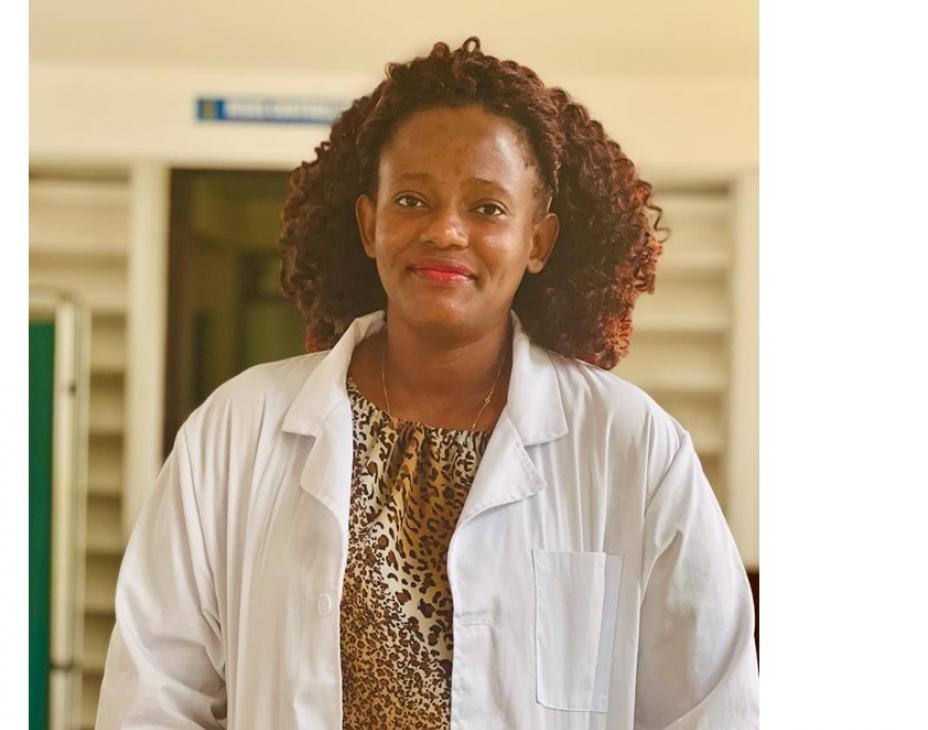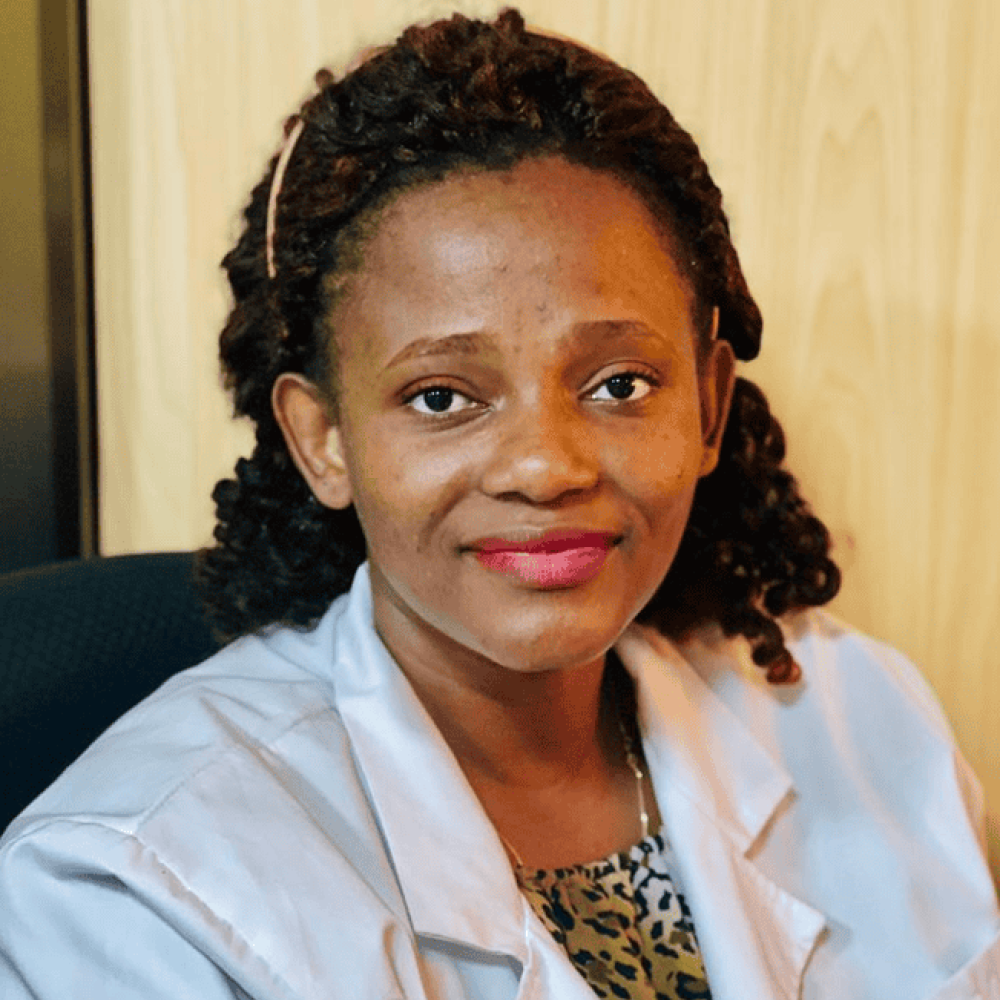These researchers have dedicated their careers to finding new treatments and cures for people with cancer.

In Tanzania, HIV infection and breast cancer are major concerns. It’s becoming critical to research the overlap between these two diseases.
People with HIV face higher risks of developing breast cancer. Given that patients with HIV may visit a doctor often, late breast cancer diagnosis should be largely avoidable. But in low- and middle-income countries (LMICs) like Tanzania, research funding is scarce, patient education is limited, and HIV and oncology care aren’t well integrated. As a result, delayed breast cancer diagnosis in patients with HIV is common. More global research that actively involves patients with HIV and breast cancer will help doctors to improve detection and advance care in Tanzania and abroad.
This is precisely the research focus of Dr. Nyagabona, a clinical oncologist at the Muhimbili National Hospital and the Muhimbili University of Health and Allied Sciences in Tanzania. She works to better understand how HIV infection affects the health-seeking behaviors of patients with breast cancer. She explores new strategies to help ensure people diagnosed with both HIV and breast cancer are included in the planning phases of clinical research and patient care.
“These patients are facing a double burden,” Dr. Nyagabona says. For these patients developing an acceptable and sustainable treatment and care approach requires their consistent participation as stakeholders. “This participatory approach,” she continues, “recognizes the unique perspectives and experiences of patients, empowering them to contribute to the research process and enhancing the relevance, acceptability, and sustainability of the findings and subsequent interventions.”
Building Rapport with Patients
To support her research, Dr. Nyagabona recently received a 2023 Conquer Cancer research grant to interview patients about their beliefs and experiences around seeking health care. Funding enabled Dr. Nyagabona to hire a research coordinator to assist with data collection and patient logistics, while also providing her with protected research time and opening doors for collaboration with other researchers and institutions. This funding also supports patient recruitment and interviews, transcription and analysis of data, and dissemination of findings through conferences, publications, and community engagement initiatives.
Dr. Nyagabona’s project could significantly enhance the overall understanding of how HIV-positive individuals navigate and experience breast cancer care, ultimately allowing for improved screening, earlier diagnosis, and tailored treatment strategies.
“This qualitative exploration allows for a deeper understanding of the impact of HIV infection on health-seeking behaviors in the context of breast cancer, capturing the intricacies and contextual factors that influence decision-making and care-seeking,” says Dr. Nyagabona. From this research, she hopes to develop theories and strategies for how to integrate and manage care for patients dealing with both HIV and breast cancer. “Our findings could contribute to the development of care integration policies that ensure holistic and patient-centered approaches, streamlined medical services, and improvements in the overall healthcare experience in this patient population.”
Patients are already benefiting from Dr. Nyagabona’s research in numerous ways. Meeting with patients for in-depth, substantive interviews gives Dr. Nyagabona greater insight into their experiences with seeking and receiving care for both HIV and breast cancer. “Through my ongoing Conquer Cancer–funded research,” Dr. Nyagabona says, “I have had the opportunity to connect with patients on a deeper level during their visits. Spending quality time with them has allowed me to understand their concerns and needs more effectively.”
Collaboration Across Disciplines
Meanwhile, this research is also revealing a consistent concern: lack of nutrition education among patients with HIV and breast cancer.
Many patients in this ongoing study report avoiding certain types of food because of misconceptions that they might cause cancer. To address this problem, Dr. Nyagabona is partnering with dieticians, oncologists, and HIV specialists to develop nutrition-related educational materials and programs. These resources are designed to dispel stigmas, promote evidence-based information, and guide patients in meeting their nutritional needs during cancer treatment.
“As patients receive this improved nutrition education and implement the knowledge into their daily lives, I have witnessed positive changes. Patients become more informed about proper nutrition, start incorporating a balanced diet, and experience improvements in their nutritional status,” Dr. Nyagabona says. “Seeing the impact of my research-informed interventions on patient outcomes brings me a sense of fulfillment and motivation. Knowing that my efforts have directly improved the lives of the patients I am working with is incredibly rewarding, and it reaffirms the significance and impact of my research.”
Dr. Nyagabona’s work could also have implications for advancing other areas of cancer care, especially in LMICs. Research specific to patients in these regions helps oncology experts to understand disease patterns, address risk factors, and advance prevention strategies. Investing in teamwork across the globe is essential for bringing new screening and treatment methods to patients everywhere—especially those living with HIV.
“My Conquer Cancer–supported project could have a broader impact on the management of other non-communicable diseases—including various cancers—in similar resource-constrained settings, where integration and coordination of care are essential for optimal health outcomes,” Dr. Nyagabona explains. “Global oncology research encourages collaboration and knowledge-sharing between researchers, clinicians, and organizations across different countries and regions, thereby enabling the adaptation and implementation of successful strategies in low-resource settings. This collective effort fosters innovation, accelerates progress, and maximizes the impact of research on cancer outcomes worldwide.”
Translational Research: A New Era of Screening and Treatment
Although her Conquer Cancer-funded study is ongoing, Dr. Nyagabona’s current progress could justify further research into refining early-detection methods and personalized treatment approaches. Next steps might involve exploring how HIV status affects patients’ responses to treatment, finding barriers to timely diagnosis, measuring the effectiveness of current treatment strategies, and crafting guidelines for multidisciplinary care.
“The findings can guide the development of personalized strategies that consider both HIV and breast cancer in an integrated manner,” Dr. Nyagabona says. “These insights can guide clinicians and healthcare systems in providing comprehensive and effective care to this patient population.”
As her research marches forward, Dr. Nyagabona will look to data collected on survival, recurrence, and treatment-related challenges to better understand the long-term outcomes of breast cancer care in patients with HIV. Clinical researchers across the globe may one day build upon Dr. Nyagabona’s work, opening more doors for testing new treatments across the cancer care continuum.
“This knowledge is essential for developing appropriate follow-up care plans, survivorship programs, and addressing the long-term health needs of HIV-positive patients who have been treated for breast cancer,” Dr. Nyagabona says. “Additionally, the findings and knowledge gained from this Conquer Cancer–funded research project can serve as a foundation for translational research. This can further advance the field and drive global development of innovative treatments and interventions.”
